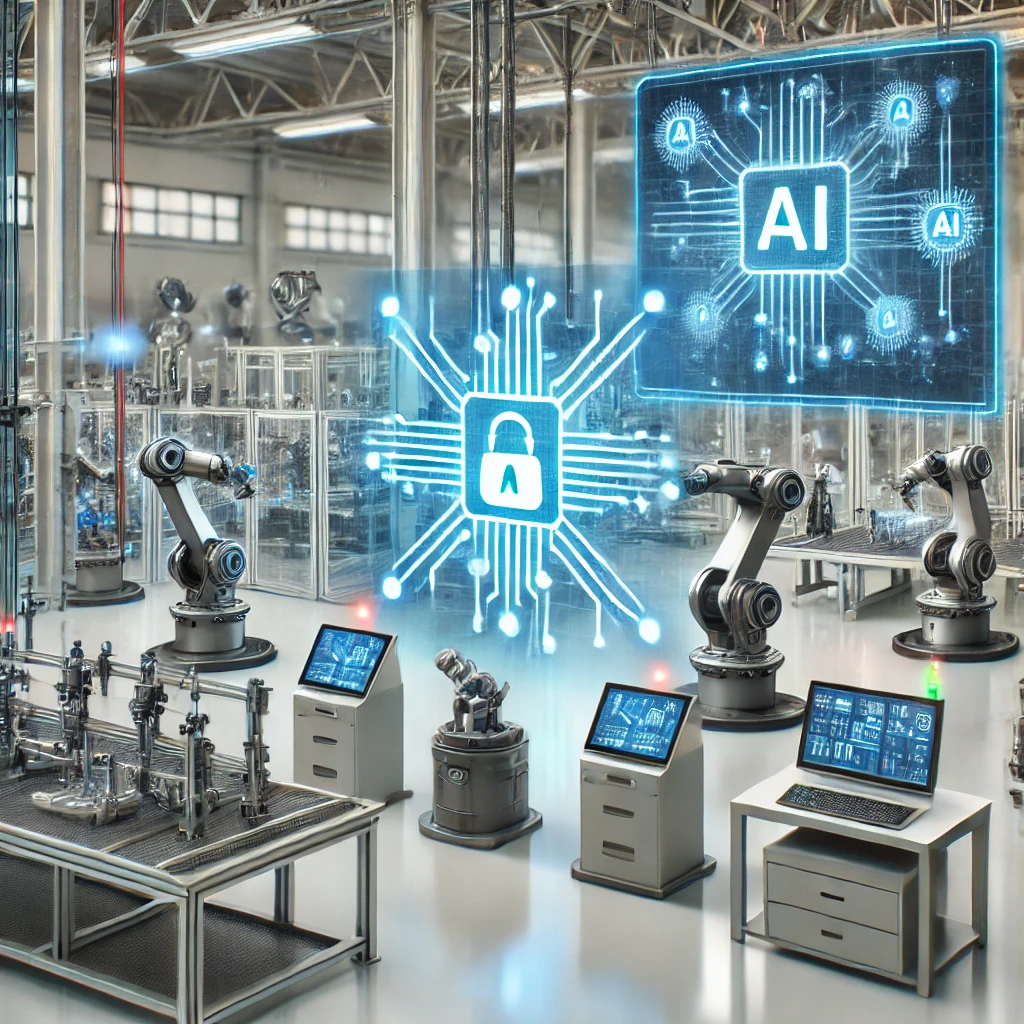AI-Powered Manufacturing Processes: The Future of Efficiency
The manufacturing industry is at a transformative crossroads, driven by the advent of artificial intelligence (AI). From automating repetitive tasks to enabling predictive maintenance, AI-powered solutions are reshaping how factories operate, ensuring higher efficiency, reduced costs, and enhanced quality. Let’s explore how AI is redefining manufacturing processes and why businesses need to embrace this revolution.
- The Role of AI in Modern Manufacturing
AI has evolved into a critical enabler in the manufacturing industry. It integrates seamlessly with technologies such as robotics, IoT, and big data analytics to optimize operations. Here’s what AI contributes to manufacturing:
- Automation: Streamlines repetitive tasks, freeing human workers for more strategic roles.
- Data Analysis: Processes vast amounts of data in real time to provide actionable insights.
- Adaptability: Adapts to dynamic production needs through machine learning algorithms.
For instance, AI can analyze production line data to identify bottlenecks, enabling real-time adjustments that boost productivity.
- Predictive Maintenance: Reducing Downtime
One of the most impactful applications of AI in manufacturing is predictive maintenance. Traditional maintenance schedules are either too frequent (wasting resources) or too infrequent (leading to breakdowns). AI changes this by:
- Monitoring equipment health through IoT sensors.
- Analyzing data to predict potential failures.
- Scheduling maintenance at the most opportune time.
This approach minimizes unplanned downtime and extends the lifespan of expensive machinery.
- Quality Control: Enhancing Product Standards
AI-powered visual inspection systems use computer vision to detect defects in products with exceptional accuracy. Unlike manual inspection, AI systems:
- Work continuously without fatigue.
- Identify minute defects invisible to the human eye.
- Learn and improve over time for more precise evaluations.
For example, AI-driven cameras can detect imperfections in automotive components, ensuring they meet stringent quality standards.
- Supply Chain Optimization
AI optimizes supply chains by providing:
- Demand Forecasting: AI predicts customer demand with greater accuracy, reducing overproduction and inventory costs.
- Route Optimization: Logistics AI systems find the fastest and most cost-effective routes for delivery.
- Supplier Management: AI tools assess supplier reliability and recommend alternatives if risks are detected.
These capabilities make the supply chain more resilient, especially in a globalized and unpredictable market.
- The Rise of Smart Factories
AI is a cornerstone of smart factories, where machines, systems, and humans work collaboratively. Features of smart factories include:
- Real-Time Decision Making: AI systems provide actionable insights based on real-time data.
- Energy Efficiency: AI optimizes energy consumption, reducing operational costs.
- Flexible Manufacturing: AI-driven machines can switch between different production tasks with minimal reconfiguration.
Smart factories exemplify the potential of Industry 4.0, where AI and automation converge to create highly efficient production environments.
- Challenges in Implementing AI in Manufacturing
Despite its advantages, adopting AI comes with challenges:
- High Initial Costs: Implementing AI technologies requires significant investment in hardware, software, and training.
- Data Security Concerns: As manufacturing becomes more digitized, protecting sensitive data becomes critical.
- Skill Gap: A shortage of skilled workers capable of managing AI systems can hinder adoption.
However, these challenges can be mitigated through strategic planning, government incentives, and industry collaboration.
- The Future of AI in Manufacturing
The journey of AI in manufacturing has just begun. Emerging trends include:
- Cobots (Collaborative Robots): Robots working alongside humans to enhance productivity.
- Generative Design: AI algorithms generating optimized product designs based on performance requirements.
- Hyperautomation: Combining AI, machine learning, and robotics to automate end-to-end manufacturing processes.
These advancements promise a future where manufacturing is not just efficient but also highly adaptive and sustainable.
Conclusion
AI-powered manufacturing processes are revolutionizing the industry, offering unprecedented efficiency, precision, and adaptability. Businesses that invest in AI technologies today will gain a competitive edge, positioning themselves for success in the evolving industrial landscape.
As the era of Industry 4.0 progresses, AI will remain at the heart of manufacturing innovation, driving the future of efficiency and redefining what’s possible in production. Are you ready to embrace this change?

No responses yet